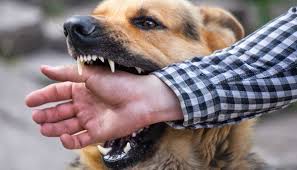Being bitten by a dog can be a physically and emotionally scarring experience. Navigating the legal aftermath to seek compensation can feel overwhelming. This guide for California residents outlines what you need to know about dog bite cases and how a skilled attorney can help you pursue a fair resolution. Their expertise in California’s specific regulations can be crucial in ensuring justice for injury victims.
Understanding California’s Dog Bite Law: Key Factors
In California, dog bite law has specific characteristics that your attorney will help you understand:
- Strict Liability: California generally follows a strict liability rule when it comes to dog bites. This means that if a dog bites someone, the owner is liable for the damages, regardless of whether the dog has bitten someone before or if the owner was negligent. There are limited exceptions, such as if the injured person was trespassing or provoked the dog. Learn more about strict liability in California dog bite cases.
- No “One-Bite Rule”: Unlike some states, California does not adhere to the “one-bite rule,” which historically protected owners if their dog bit someone for the first time and had no prior history of aggression. In California, an owner can be held liable even if it’s the dog’s first bite.
- Leash Laws and Local Ordinances: California cities and counties often have leash laws and ordinances regarding the control of animals. A violation of these laws that leads to a bite can strengthen your case by demonstrating negligence on the part of the owner.
- Statute of Limitations: In California, the statute of limitations for personal injury cases, including dog bites, is generally two years from the date of the injury. It’s crucial to contact an attorney as soon as possible to ensure you don’t miss this deadline.
Securing Necessary Medical Treatment
The priority after a dog bite is your health. A dog bite lawyer can help ensure your medical needs are addressed and documented for your case:
- Prompt Medical Attention: Seek immediate medical attention for any dog bite. This might include cleaning the wound, stitches, antibiotics to prevent infection, and even rabies shots depending on the circumstances.
- Documentation is Key: Your lawyer will emphasize the importance of documenting all injuries with photographs and detailed medical records from doctors, emergency rooms, and any specialists you consult.
- Addressing Long-Term Effects: A severe dog bite can result in disfigurement, scarring, nerve damage, mobility issues, and emotional trauma. Your attorney will work to ensure your claim accounts for ongoing medical treatment, therapy, and any long-term impact on your life.
- Financial Coverage: Your attorney will help you navigate insurance claims to ensure you receive coverage for your medical expenses. The average cost of medical treatment after a dog bite can be significant, highlighting the importance of proper compensation.
Who to Contact Following a Dog Attack in California
After ensuring your safety and seeking medical help, it’s important to take these steps and inform your attorney of them:
- Report to Animal Control: In California, it is often required to report a dog bite to your local animal control agency. They can investigate the incident, create an official report, and ensure the dog is quarantined for rabies observation. You can usually contact them through your local city or county government.
- Contact the Police (If Necessary): If the attack was severe, involved a dangerous dog, or if the owner is uncooperative, you may need to file a police report. This report can provide crucial details about the incident, including the location and owner information.
- Gather Information: If possible and safe, collect the dog owner’s contact information, including their name, address, and phone number. Note any witnesses present and get their contact details as well.
- Inform Property Owners/Managers: If the bite occurred on rented property, in a public park, or in another shared space, notify the property owner or manager.
Exploring Options: Mediation or Lawsuit
While you might initially consider contacting the dog owner directly, engaging an experienced attorney offers significant advantages:
- Realistic Settlement Value: An attorney understands the full extent of damages you may be entitled to, including medical bills (past and future), lost wages, pain and suffering, and emotional distress. They can research the dog owner’s insurance coverage and assets to determine a realistic settlement range.
- Filing a Complaint and Discovery: If a settlement cannot be reached through negotiation, your attorney will file a formal lawsuit. They will handle all legal procedures, including gathering evidence through depositions (sworn testimonies) from the defendant and witnesses.
- Negotiating with Insurance Companies: Insurance companies often try to minimize payouts. Your lawyer will act as your advocate, skillfully negotiating with insurers to reach a fair settlement. They will prepare and present compelling settlement demand letters outlining your case.
- Litigation and Trial: If mediation fails, your attorney will prepare your case for trial. They will present evidence, cross-examine witnesses, and argue your case before a judge and jury to seek a court-ordered judgment for your damages.
- Appealing Insufficient Awards: If a court award is deemed insufficient, your attorney can advise you on the possibility of an appeal to seek a more appropriate outcome.
Identifying and Choosing a Trusted Dog Bite Lawyer in California
Selecting the right legal representation is crucial. Consider these factors when looking for a dog bite attorney in California:
- Referrals: Ask friends, family, or trusted professionals like your primary care physician for recommendations. Doctors sometimes have experience with personal injury cases and can offer valuable insights.
- Online Research and Reviews: Look for attorneys endorsed by the State Bar of California and local bar associations. Websites with client reviews can provide valuable insights into other people’s experiences.
- Board Certification: While not always necessary, look for attorneys who are board-certified in personal injury law, as this demonstrates a certain level of expertise and commitment to the field.
- Accessibility and Consultation: Most reputable dog bite attorneys offer free initial consultations. Take advantage of this opportunity to discuss the specifics of your case and assess whether the attorney is a good fit for you.
Key Questions to Ask Potential Dog Bite Lawyers
During your initial consultations, don’t hesitate to ask these important questions:
- Do you primarily handle dog bite cases or personal injury cases? Look for someone with specific experience in this area of law.
- What is your track record in dog bite cases? Ask about their success rate in obtaining favorable settlements or verdicts for their clients.
- Is my case likely to settle out of court, or should I prepare for a lawsuit? Understand the potential paths your case might take.
- How long do you anticipate my case will take? While it’s difficult to give an exact timeline, an experienced attorney can provide an estimated range.
- What are your fees? Discuss their fee structure, including whether they work on a contingency fee basis (meaning they only get paid if you win your case).
- How often will you communicate with me about the progress of my case? Ensure they have a system for regular updates and are responsive to your inquiries.
- How does California dog bite law specifically apply to my situation? They should be able to explain the relevant laws in the context of your case details.
READ ALSO: Texas Car Accident Claims: Latest Laws, Stats & Top Accident Lawyers
Finding the right dog bite lawyer in California can significantly impact the outcome of your case. By understanding your rights and knowing what to look for in an attorney, you can ensure you have strong advocacy by your side, allowing you to focus on your recovery and rebuilding your life.






